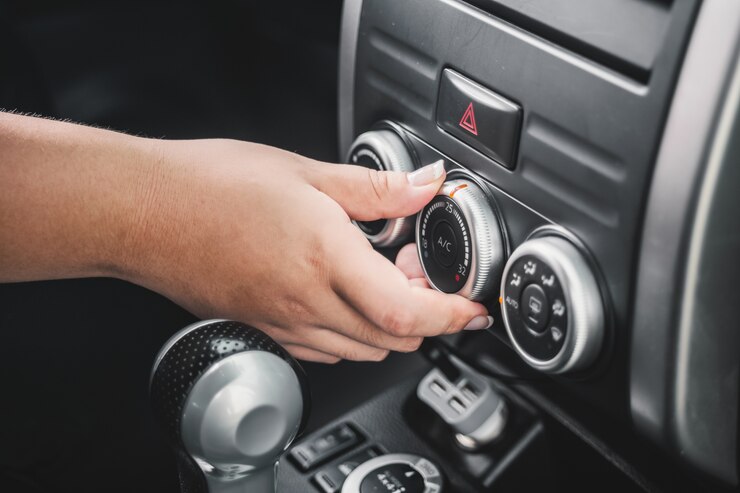A functional air conditioning (AC) system is essential for maintaining comfort and safety while driving, especially during hot summer months. However, like any automotive component, AC systems can wear out over time and require replacement. Recognizing the signs of a failing AC system can help you address issues before they escalate into costly repairs or complete system failure. In this article, we’ll explore 10 common signs indicating that your car’s air conditioning system may need replacement.
1. Weak Airflow:
If you notice a significant decrease in airflow from your AC vents, it could indicate a problem with the blower motor, fan, or ventilation system. Reduced airflow may also result from clogged air filters or ductwork, requiring professional inspection and potential replacement.
2. Insufficient Cooling:
One of the most obvious signs of AC system failure is insufficient cooling. If your AC is blowing warm or lukewarm air instead of cold air, it may indicate issues such as refrigerant leaks, compressor failure, or a malfunctioning condenser. In such cases, replacement of these components may be necessary to restore proper cooling performance.
3. Unusual Odors:
Strange odors emanating from your AC vents, such as musty or foul smells, could indicate mold or bacteria growth within the system. Additionally, burning or chemical-like odors may signal electrical or mechanical issues, necessitating prompt inspection and potential replacement of affected components.
4. Loud or Unusual Noises:
Unusual noises coming from your AC system, such as grinding, squealing, or rattling sounds, often indicate underlying mechanical problems. These noises may stem from worn-out bearings, damaged belts, or failing compressor components, requiring professional diagnosis and replacement as needed.
5. Leaking Fluids:
The presence of refrigerant or water puddles beneath your car may indicate leaks in the AC system. Refrigerant leaks not only compromise cooling performance but also pose environmental and health hazards. Addressing leaks promptly and replacing damaged components is crucial to prevent further damage and ensure system efficiency.
6. Constant Cycling:
If your AC system frequently cycles on and off or struggles to maintain consistent cooling, it may be a sign of compressor or refrigerant issues. Constant cycling can lead to premature wear and tear on AC components, necessitating replacement to restore proper functionality.
7. Inconsistent Temperature:
Inconsistencies in temperature output from different AC vents or settings may indicate blockages in the system, refrigerant leaks, or malfunctioning components. Professional inspection and replacement of affected parts may be necessary to achieve consistent cooling performance.
8. Dashboard Warning Lights:
Dashboard warning lights, such as the AC or check engine light, may illuminate to alert you to potential AC system problems. Ignoring these warning signs can lead to further damage and costly repairs. Consult a qualified mechanic to diagnose the issue and determine if replacement is necessary.
9. Excessive Moisture:
Excessive moisture inside the car, such as condensation on windows or damp carpets, could indicate AC system malfunctions. Moisture buildup may result from clogged drains, refrigerant leaks, or damaged seals, necessitating replacement of affected components to prevent mold growth and interior damage.
10. Age and Wear:
Finally, the age and overall condition of your car’s AC system can influence its performance and reliability. If your vehicle is several years old or has experienced frequent AC-related issues, it may be time to consider replacement to ensure optimal comfort and safety on the road.
Maintaining a properly functioning air conditioning system is essential for comfortable and safe driving, especially in hot weather conditions. By recognizing the signs indicating potential AC system problems, such as weak airflow, insufficient cooling, unusual odors, or loud noises, you can take proactive steps to address issues before they escalate. Consulting a qualified mechanic and considering replacement of worn-out or damaged AC components can help restore optimal cooling performance and ensure your comfort on the road.











